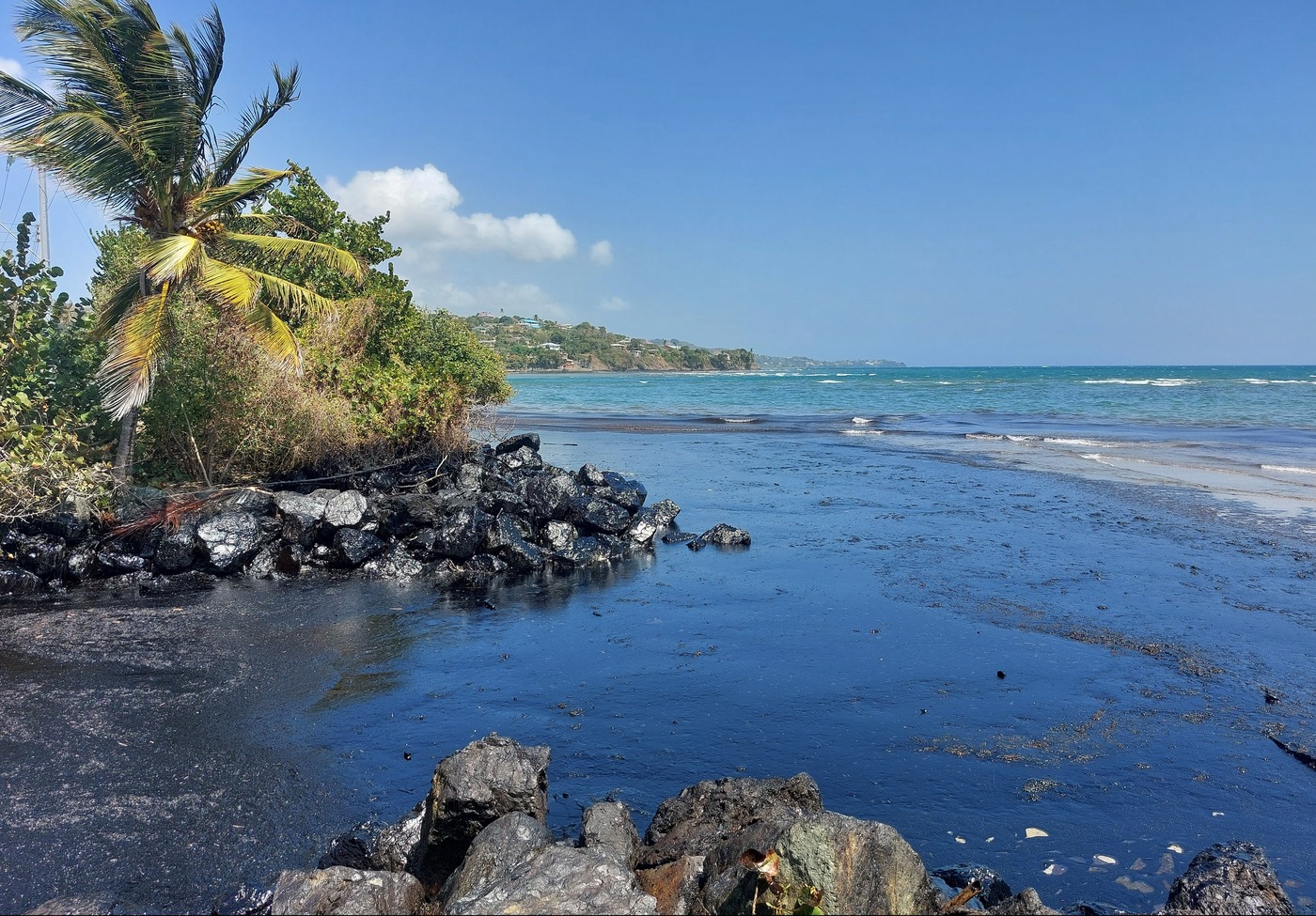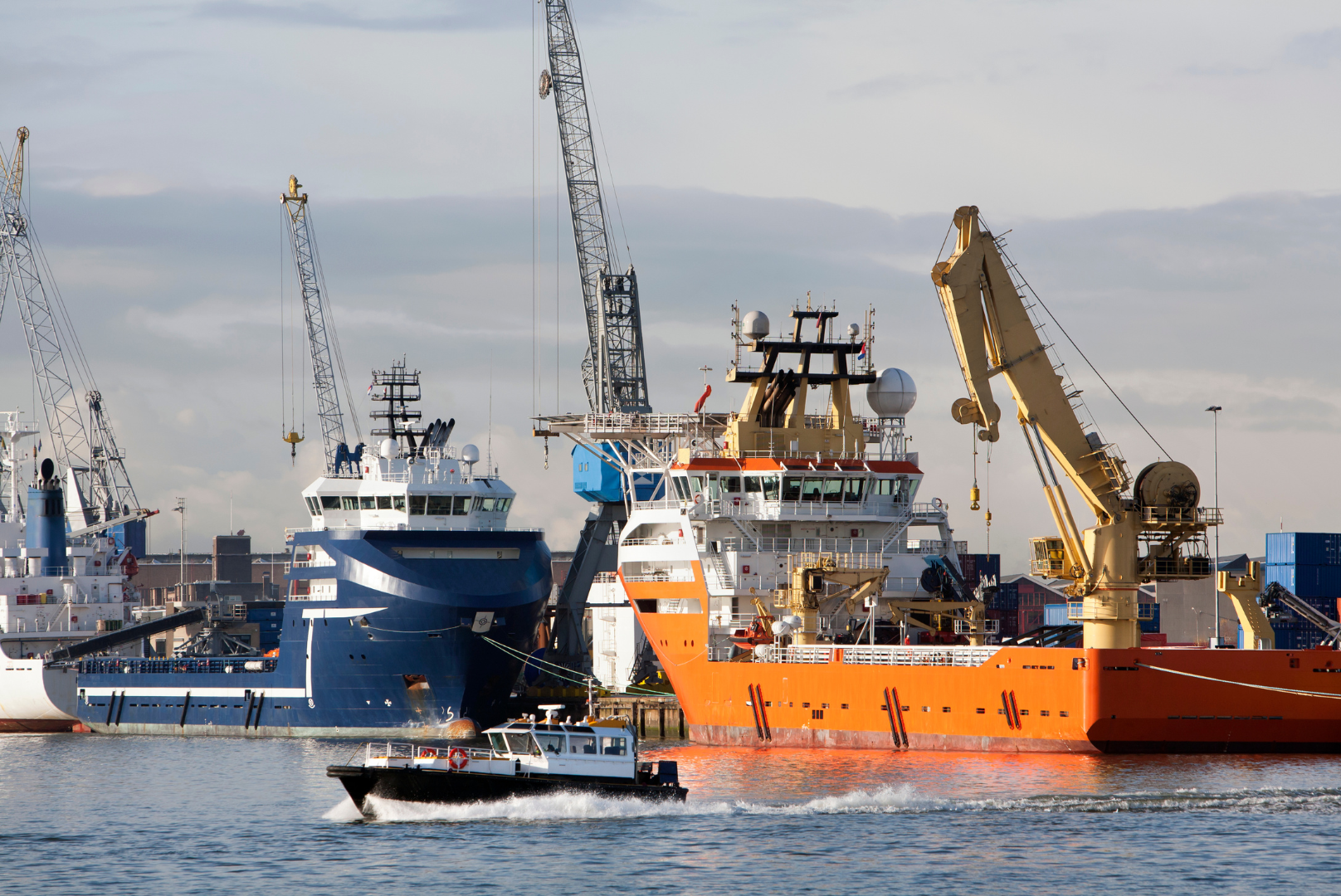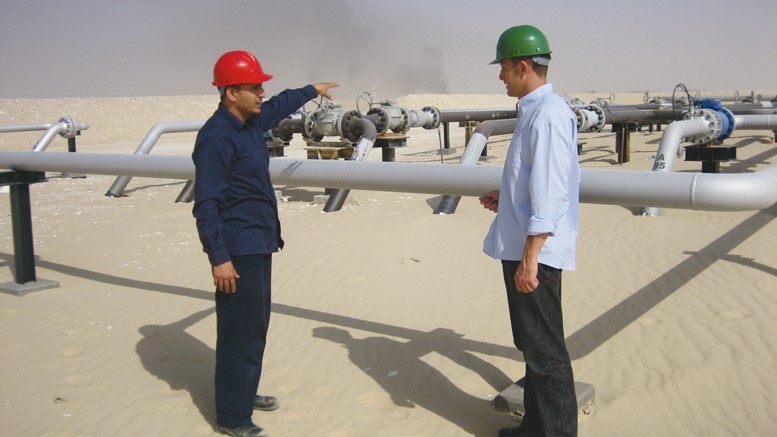Estudio de caso: Transformación de los conocimientos de la revisión de incidentes en avances: mejora de las operaciones locales de abastecimiento de combustible y mitigación de riesgos futuros
El incidente de abastecimiento de combustible de embarcaciones marinas frente a la costa de Sudáfrica desencadena una revisión de los arreglos locales de preparación y respuesta ante derrames de petróleo para mejorar la preparación y la capacidad.
Background
We were contacted by one of our Members following an incident that occurred off the coast of South Africa, in November 2021. During bunkering operations, two vessels were involved in an event near Algoa Bay, Port Elizabeth, that caused black oil to spill into the surrounding water. One vessel was supplying the other with 600MT of low-sulphur fuel oil when the spill was reported.
Several local companies arrived on the scene, and a local marine company acted in the capacity of first responder by vessel to assess the oil spill. Initial actions were taken to deploy absorbent booms to contain the oil before commencing the recovery and clean-up of black oil from the water. Three vessels in total were deployed by local companies to assist with containment and recovery operations. The Harbour Master of Ngqura requested that additional resources be deployed to assist the initial spill responders, and an additional, locally-based oil spill response company complimented the first responders.
Bunkering of fuel or diesel oil requires a great deal of care and preparedness to prevent an oil spill from occurring. There are well-documented bunkering procedures for conducting operations on a ship, and these fall into three main areas:
Preparation: Preparing for the bunkering operation, which will involve the readiness of bunkering equipment, storage tanks, and bunkering safety including risk assessments and permits to work.
Perform: Performing the bunkering operation in real-time as per the pre-determined procedure and receiving the marine fuel according to the bunker plan.
Wrap-up: Wrapping up the bunkering operation with utmost safety and ensuring the correct amount and quality of bunker fuel has been received onboard from the bunkering facilities (bunker ship or shore truck, etc.)
A key part of the preparation and performance phase is the safety procedures, emergency procedures in case of an oil spill, and the responsibilities of each stakeholder involved in the emergency if the worst-case scenario were to occur.
This incident that took place off the coast of South Africa triggered a more competent spill response training programme to be given to companies managing delivery vessels in this part of the world.
Solution
Following an internal review of the incident, our Member was concerned that there was a gap in local oil spill preparedness and response capability, considering there had been two other reported incidents involving similar bunkering operations in the same location: Lefkas and Umnenga II took place in May 2022, and Chrysanthi S and Anuket Jade took place in July 2019.
Our Member requested that we facilitate a workshop for the Algoa Bay companies and stakeholders involved in oil spill preparedness and response. We were asked to review and discuss actions during recent spills and support them by exploring ways to improve local readiness and capability.
The stakeholder workshop required:
- Review/discuss actions on the recent oil spills
- Review/discuss the current organisational setup for a response
- Explore actions for improvement, and
- Assess the condition of sub-contracted oil spill response readiness, equipment capability, and competency
Challenges
The workshop allowed them to identify all the different bodies that they would need to work with, including; Local Authorities, Bunkering Operators, Coast Guard, etc, as well as helping each party to understand their responsibilities.
The main challenge to come out of the workshops was the realisation that the bodies were operating individually and not communicating with one another during incidents like this. It was also clear that there was some blame shifting towards each other for the way things were handled and what happened. The stakeholders realised that there was a need for all of the bodies to work together for the greater good of the port and surrounding areas. The responsibility should fall on everyone involved and all parties should work together collectively.
It became clear that there was no proper planning in place if an incident occurred whilst bunkering was taking place, which is why we were asked to help develop their local plan to improve their response in the future.
To overcome these challenges, we facilitated Incident Management Training for all involved to encourage them to work together more fluidly and help them improve their Local Bay Contingency Plan. The idea was to get them working together and improve their preparedness in case of future incidents.
Results
Following the stakeholder workshop, the findings and recommendations for improvement to close identified gaps were shared with our Member. The primary focus was to present recommendations to ensure both offshore and shoreline oil spill capability met the needs of the identified operational risk. Recommendations for oil spill equipment and planning improvements were presented based on risk reduction and international industry good practice.
Our Member received a full review of the suitability of local equipment and the suggested improvements that could be made to increase preparedness should future incidents occur.
One observation to come from the review suggested that the local plan could be better suited under the custodianship of the local port authority.
The review also encouraged the stakeholders to include more training for local staff, access to all environmental sensitivity data, including mapping, an exercise and drill programme, and a scenario-based oil spill risk assessment for operations.
Why OSRL?
Incident review is a critical step in identifying lessons learned for all stakeholders and ensuring gaps are addressed so the consequences of such events can be mitigated in the future. We are well-placed as an expert in oil spill preparedness and response to assist in this area and share our operational experience underpinned by international good practice for the benefit of those involved in the maritime supply chain.
Following the stakeholder workshop and findings, our Member has since commissioned us to conduct an additional Corporate Incident Management Quick Reference Guide and an Oil Spill Contingency Planning Annex detailing an overall Incident Command Structure (ICS) and processes for managing an emergency from its global marine assets for larger incidents. This demonstrates how effective after-action reviews following oil spill incidents can be key in identifying lessons learned and feeding developments for continuous improvement into wider emergency and contingency plans.
The marine and shipping industry is complex in nature, and bunkering operations present just one risk that requires robust contingency plans, training, and exercise programme to test oil spill preparedness, readiness, and response.
¿Su nivel de capacidad de respuesta está a la altura?
Evalúe su nivel de capacidad, desde los recursos hasta la documentación y la competencia del personal, y realice mejoras con la ayuda de nuestro servicio de revisiones de capacidad.






